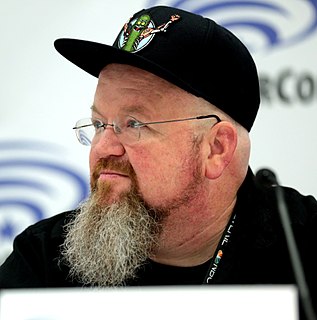A Quote by Betsy DeVos
Government tends to stifle innovation, and it abhors improvisation. Any good military strategist will tell you that a battle plan rarely survives past the first engagement. After that, you have to improvise to survive and to win.
Related Quotes
We're just trying to end illegitimate government support for a single technology, which is un-American. We should be leading the world in the next generation of technological innovation. But we can't unleash private capital because of what the government is doing to stifle innovation and to choke competition.




































